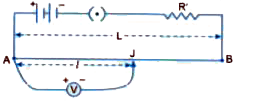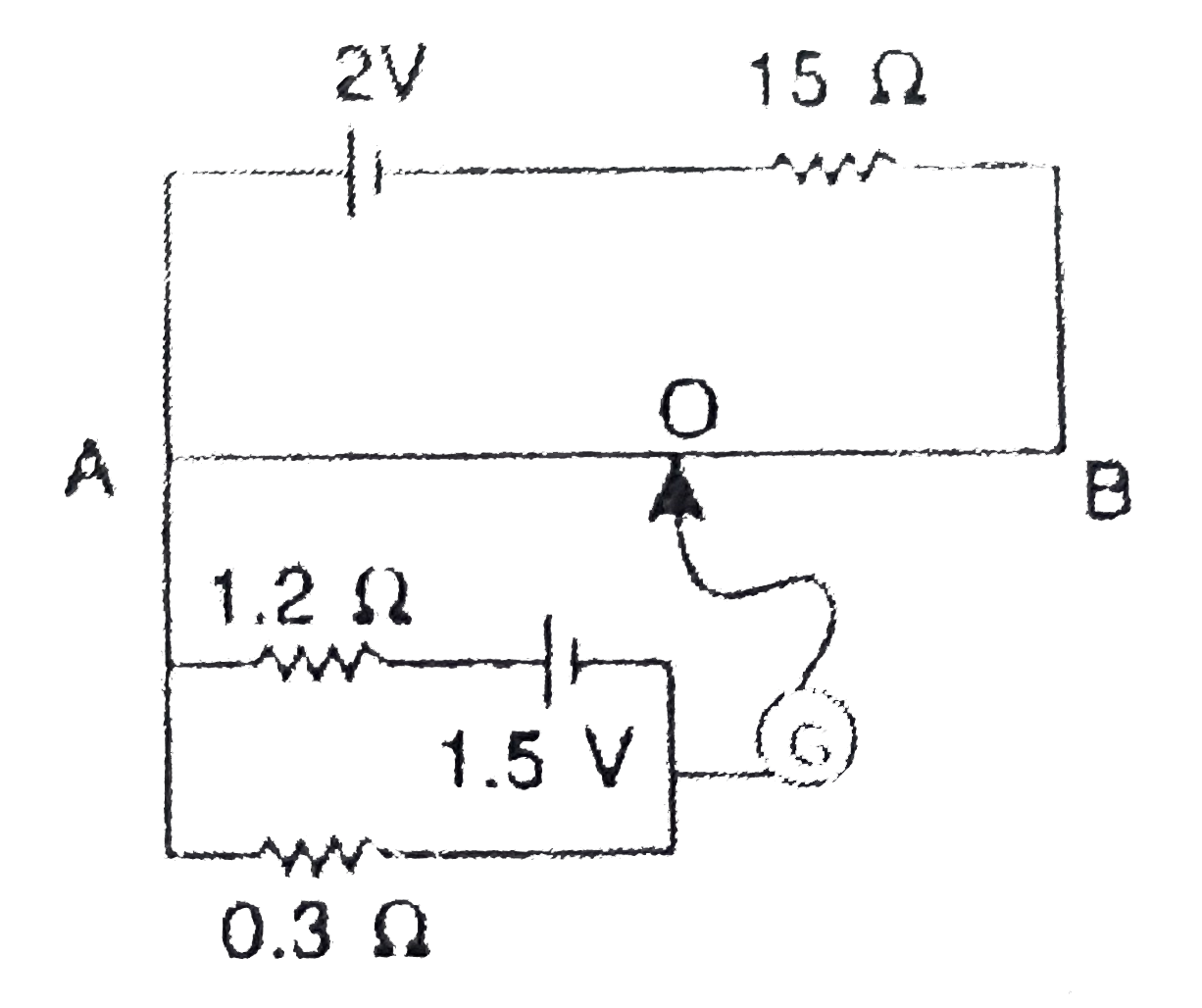Explain the principle on which the working of a potentiometer is based. Why is the use of a potentiometer preferred over that of a voltmeter for measurement of emf of a cell ?

A potentiometer works on the principle that for a constant current flowing through the potentiometer wire of uniform cross-section, the fall in potential is directly proportional to length. Let as shown in adjoining Fig., a battery of emf ε0 is connected across a potentiometer wire of length L and resistance R and an external series resistance R.. Then constant current flowing through the potentiometer wire is
I=ε0(R+R.)
∴Fall in potential along the potentiometer wire =IR=ε0R(R+R.)
and the fall in potential per unit length (i.e., the potential gradient) k=ε0R(R+R.)L. ,which is a constant. Thus, potential drop across a length l of potentiometer wire V = kl, which is the basic working principle of the potentiometer. For measurement of emf of a cell, a potentiometer is preferred over a voltmeter because at the time of taking the reading no current is being drawn from the given cell and the cell is in an open circuit.
Topper's Solved these Questions
- CURRENT ELECTRICITY Book:U-LIKE SERIESChapter:CURRENT ELECTRICITY Exercise:LONG ANSWER QUESTIONS - I
Explore 47 Videos
- CURRENT ELECTRICITY Book:U-LIKE SERIESChapter:CURRENT ELECTRICITY Exercise:LONG ANSWER QUESTIONS - II
Explore 8 Videos
- CURRENT ELECTRICITY Book:U-LIKE SERIESChapter:CURRENT ELECTRICITY Exercise:VERY SHORT ANSWER QUESTIONS
Explore 39 Videos
- CBSE SAMPLE QUESTION PAPER 2019-20 (SOLVED)Book:U-LIKE SERIESChapter:CBSE SAMPLE QUESTION PAPER 2019-20 (SOLVED)Exercise:SECTION D
Explore 6 Videos
- DUAL NATURE OF RADIATION AND MATTERBook:U-LIKE SERIESChapter:DUAL NATURE OF RADIATION AND MATTERExercise:SELF ASSESSMENT TEST SECTION-C (VERY SHORT ANSWER QUESTIONS)
Explore 3 Videos
Similar Questions
Knowledge Check
A potentiometer can measure emf of a cell because:
Athe sensitivity of potentiometer is large.Bno current is drawn from the cell at balance.Cno current is drawn from the cell at balance.Dinternal resistance of cell is neglected.
(i) State the principle of working of a potentiometer.
(ii) In the following potentiometer circuit AB is a uniform wire of length 1 m and resistance 10Ω
Calculate the potential gradient along the wire and balance length AO (=l)

View SolutionState the uses of a potentiometer. Why is a potentiometer preferred over a voltmeter for measuring emf?
View SolutionWhat are the disadvantages of a potentiometer over a voltmeter?
View SolutionWhy do we prefer a potentiometer to measure emf of a cell rather than a voltmeter ?
View SolutionWhy do we prefer a potentiometer to measure emf of a cell rather than a voltmeter ?
View SolutionWrite the principle of working of a potentiometer. Describe briefly, with the help of a circuit diagram, how a potentiometer is used to determine the internal resistance of a cell.
View SolutionExplain the use of potentiometer for comparison of e.m.f. of two cells.
View Solution
